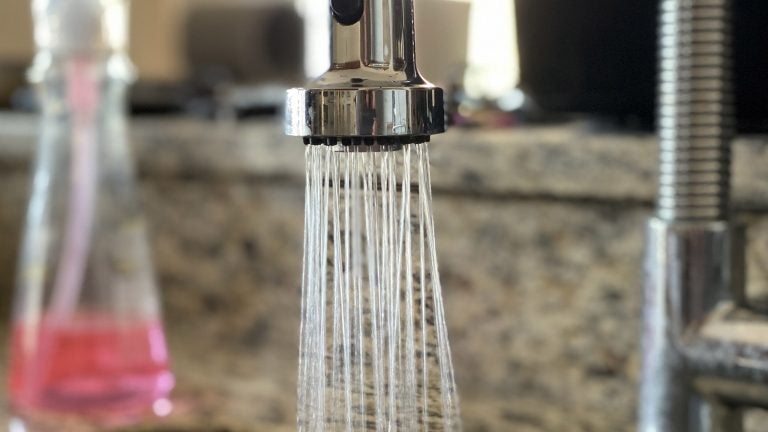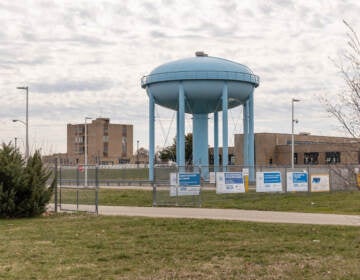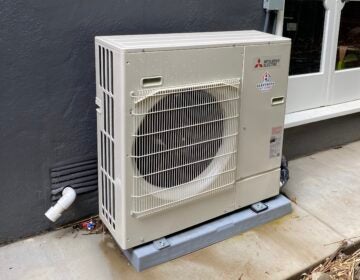Want to save money on your water bill? Start with checking for leaks
Water providers and environmental agencies have several tips to help homeowners find leaks and cut down on water waste.

(Danya Henninger/Billy Penn)
From Philly and the Pa. suburbs to South Jersey and Delaware, what would you like WHYY News to cover? Let us know!
Population growth, increased development and global warming have an impact on water supply. But the average household wastes about 10,000 gallons of water a year, according to the Environmental Protection Agency.
In addition, 10% of homes have leaks that waste 90 gallons or more per day. So, water providers are encouraging residents to conserve their usage by fixing leaky faucets and toilets.
“We oftentimes, I think, feel overwhelmed that there aren’t things we can do to help the environment,” said Mark McDonough, president of New Jersey American Water. “This is one simple thing that we can all do that actually can have an outsized impact.”
The EPA has several tips for finding leaks in homes. For instance, if the water meter changes when water is not in use, there may be a leak. Homeowners should also check their water bill monthly — if the usage increases but the household size hasn’t changed, there may be a leak.
Residents can also find toilet leaks by adding a drop of food coloring in the tank at the back of the toilet. If there’s color in the bowl after 10 minutes, there may be a leak.
Old toilet flappers, which hold water and release it into the bowl when the toilet is flushed, also can cause leaks. The flapper should be replaced at least every five years to avoid leaks, the EPA advises.
The agency also offers resources on how to replace leaky faucets and shower heads. Some leaky shower heads can be fixed by using pipe tape to secure a tight connection with the pipe stem.
Tackling water leaks also helps consumers save about 10% on their water bills, according to the EPA.
“Water is oftentimes an anonymous resource to folks. They open the tap, and it comes out,” McDonough said. “But there is a lot that goes behind cleaning and delivering that water, and so anything we can do to help safeguard that as we go forward — because, again, there are a lot of pressures on the water that we have in our world — is greatly appreciated.”

Get daily updates from WHYY News!
WHYY is your source for fact-based, in-depth journalism and information. As a nonprofit organization, we rely on financial support from readers like you. Please give today.






